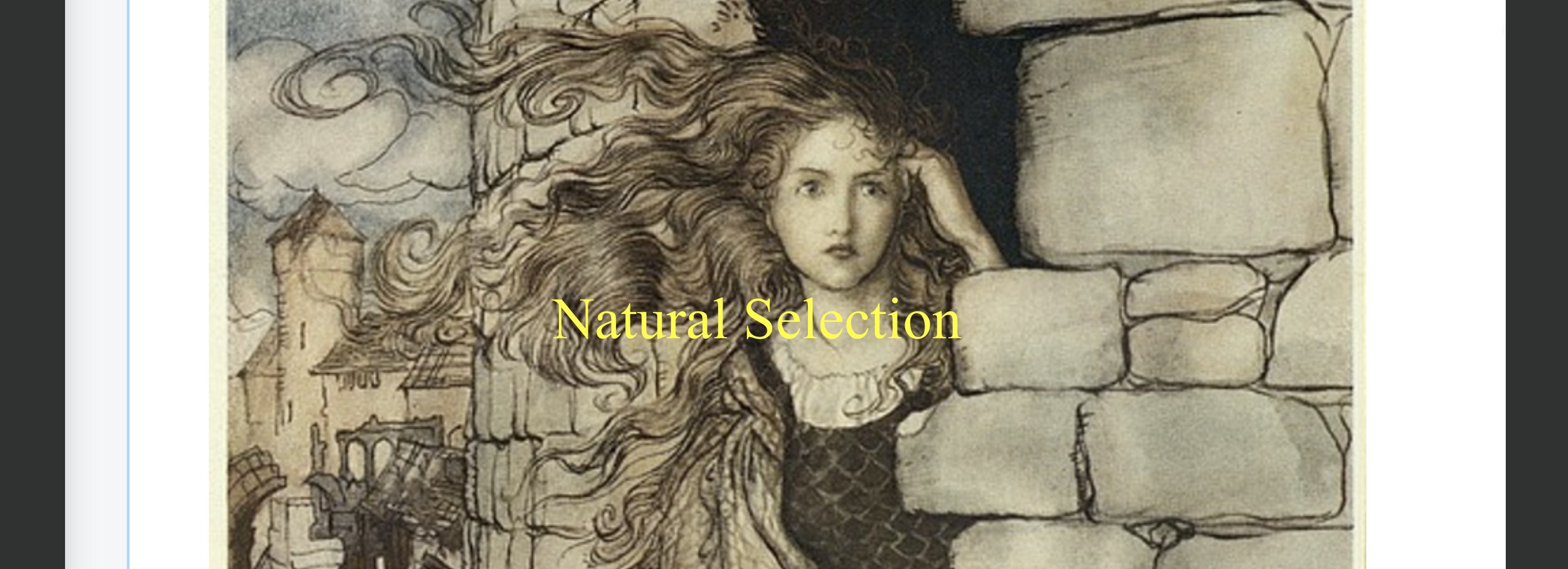Natural Selection
In the galactic chaos of Fallar Ultima, life was a hazardous affair. Even on the relatively stable planet of Fallar Prime, beings morphed into monsters, and monsters sprouted wings. In the trenches of the capital city, Fallar Discordia, the alleys were so dark that citizens had to jab one another to see where they were going.
Fallarians loved being in the dark. This wasn’t just a physical thing. They also preferred to be in the dark about what was happening in the world around them. Otherwise, where was the fun? Parents never told their children what to do, lawyers never told their clients what to say, and no one dared to tell you who you were.
Fallarians laughed at the crude infractions and indoctrinations of the primitive races. The humans called it child rearing, as if children were cattle. The Baulians were even worse: they poured chemicals into the nervous systems of their offspring until they became exactly what their rulers wanted them to be. But the Vicinese were the absolute worst, unless of course you wanted to be a boot-licking goody-two-shoes.
Above the elementary school entrance the Fallarian School Board placed a sarcastic plaque, with the assurance that any student stupid enough to take it seriously deserved what he got. It was a quote by the great German writer Johann Wolfgang Von Goethe:
We’ll teach you that your process of thinking / Instead of being like eating and drinking, / Spontaneous, instantaneous, free, / Must proceed by one and two and three.
And above the door as they left the building, the little tykes could read:
Logic will train your mind all right; / Like inquisitor’s boots it will squeeze you tight, / Your thoughts will learn to creep and crawl / And never lose their way at all.
In the Fallar Dominion citizens had the freedom to become whatever they wanted to be. They could grow into what circumstance offered, or they could grow out of it. They could, if they felt like it, decide to go against all custom and become something completely different than anyone would have imagined. This was summed up in the Fallarian couplet:
Better to become than merely to be; Better to revolt than bow to an overgrown flea.
Fallarians certainly didn’t believe in a Creator who determined everything in advance, and then pretended people had free will.
Slowly and subtly, Fallarian children began to suspect that they were children of their own nature. The knowledge wasn’t immediate or clear. It wasn’t thrust upon them, as in the Baulian process of infraction, a process which appeared crude and tyrannical to the Fallarians. Instead, the awareness of Fallarian identity first appeared as if buried deep inside them, like a dream.
From the ages of ten to twelve, they sensed that a tantalizing world lay inside their cobalt-blue blood, yet all they could do was guess and extrapolate. They were sometimes terrified by the gaps and abysses they found within themselves. At other times they were delighted by the manner in which their desires aligned with information that magically appeared as if to help them fulfill those desires. Everything was at their finger tips, everything was within them.
When Fallarian adolescents learned to fall within themselves without the desire to land, they stopped thinking If I were … and started thinking When I become … . In brief, they learned to fly. By the age of 13, all but the dullest among them realized that this fundamental freedom meant that they were in fact Fallarian, and not some grounded slave species. By 15, they could activate at will any number of infracted parameters.
At 16 they enacted the age-old ritual of passage: they spat on their parents doorstep and took to the open road. At the first bar they came upon, they drank themselves into oblivion, which made silver sparkles appear on the edges of their wings. The next morning they took to the open skies, leaving behind them beautiful girls with hair flying in the wind, wishing that they too could take to the skies.
They then flew from town to town, or hopped onto intergalactic freighters whenever they got bored or were threatened with prison for offending the virtue of some peasant race. The Fallarians called this journey of discovery the flyover. It made the aboriginal walkabout look like a picnic in an English garden.
Within a year or two, the Fallarian youth developed the supreme arrogance which made their species masters of the 10 trillion galaxies of The Black Pulse.
Because young Fallarians weren’t forced to know agreed-upon things, they didn’t see the process of growing up as coercive or tyrannical. They didn’t call it an infraction, because the infractions that blossomed inside them were what they learned and not what made them learn. They had the option of selecting what seemed natural for them to select. They called this process natural selection.
🧚
Next: 🔮 Dinner Guests from Baulis Prime
Contents - Characters - Glossary: A-F∙G-Z - Maps - Storylines


